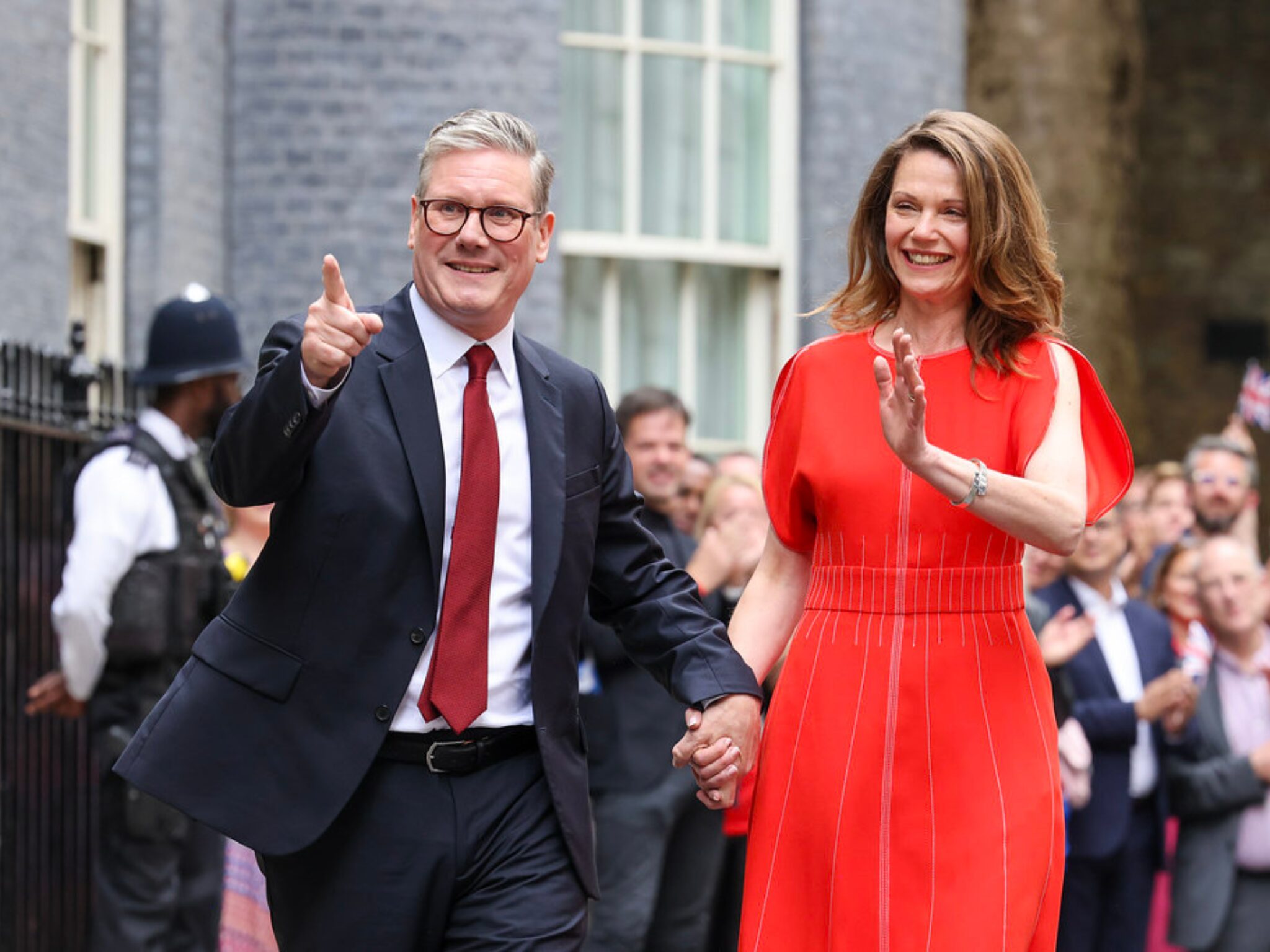Leading By Example: Brits Willing to Take Climate Action If Politicians & Celebrities Do So First
5 Mins Read
A new study has revealed that UK consumers are more likely to curb their carbon footprint if they see their leaders take climate action.
Politicians, business leaders and celebrities could be the “missing link” to public climate action, influencing people’s adoption of low-carbon lifestyles, according to a new study.
Conducted by psychologists from Cardiff University, the survey aimed to explore the importance of behavioural leadership in the fight against the climate crisis, and found that 86% of Brits feel leaders should set an example by making lifestyle changes first.
“Behavior change is essential for reducing greenhouse gas emissions quickly. Flying less, eating less meat, driving electric cars, improving home energy efficiency, increased use of public transport and active travel are some of the most impactful changes we can make,” said research lead Steve Westlake, a post-doctoral research fellow at the Cardiff University School of Psychology.
“However, these choices have proved elusive in the general population and are rarely encouraged or modelled by high-status individuals,” he added.
The research, published in the Humanities and Social Sciences Communications journal, asked 1,267 Brits about their view on leaders who advocate for climate action while either leading by example, or not. Nearly 80% feel the personal behaviour of politicians, business leaders and celebrities is relevant to climate change, while 90% believe people with the largest climate footprints should make the biggest lifestyle shifts.
“There is a strong appetite for leadership among the public – people really want to see leaders acting first,” revealed Westlake. “Our results indicate that embodied leadership by way of visible low-carbon behaviour may provide a crucial ‘missing link’ in addressing the climate crisis, because it shows that leaders really are serious about it.”
‘Walking the talk’ cuts emissions and boosts credibility

More than half (53%) of the respondents indicated that they would be more willing to make lifestyle changes to tackle the climate crisis if these leaders went first, while only 20% rejected this idea.
“If leaders are advocating for various forms of climate action including behaviour change, they will be more effective if they ‘walk the talk’ by adopting a suite of low-carbon behaviours, and will have a negative effect on the motivation of the public if they do not,” said Westlake.
By reducing their own carbon footprints, politicians and celebrities who lead by example aren’t just encouraging others to act, but also improving their credibility among the public.
These leaders were rated significantly more favourably on all leadership criteria compared to those who weren’t leading by example. They were thought to be more credible, effective, warm and competent, as well as more caring about climate change and acknowledging the gravity of the crisis.
Politicians and celebrities leading by example were also believed to be more knowledgeable about climate change and more effective climate leaders, and enjoyed greater approval ratings. Plus, they were perceived as more trustworthy, honest, inspirational, ethical, and having a better ability to persuade others to follow.
The authors noted that example-setting leaders didn’t prompt negative reactions, despite their adoption of high-impact behaviours carrying the risk of making them seem “a bit too virtuous”. They were also not found to have exaggerated climate change or given it “too much priority”.
On the flip side, leaders who don’t walk the talk scored negatively on trustworthiness, making moral and ethical decisions, and being inspirational. “For climate leaders such as politicians and celebrities, leading by example could therefore create a win-win situation: increasing their electability, popularity and effectiveness, as well as inspiring others to act,” the study stated.
The researchers revealed that there was no statistically significant difference among people across the political spectrum. Those on the right responded at least as positively to behavioural climate leadership as those on the left. “Leading by example might be an effective way of engaging those on the political right, perhaps because it aligns with conservative values of self-regulation and personal responsibility.”
How politicians and celebrities can truly lead by example

Brits who observed an example-setting leader were much more willing to fly less, use public transport more often, and make certain sacrifices, and trends in the data suggested that this could also have a positive effect on the willingness to eat less meat and improve home energy efficiency.
The majority of respondents (78%) believed that everyone should make lifestyle changes at the same time to tackle climate change, and 64% would be willing to take action if they knew that most other people were too. This, the authors said, supports prior evidence that members of the public desire both leadership and a collective effort.
In a separate study, Westlake interviewed 19 British MPs and found that while some do model low-carbon behaviour to maintain their credibility as climate advocates, they do so quietly out of fear of negative reactions from the media, political rivals, and constituents.
“Even pro-climate MPs tend to frame low-carbon behaviour as ‘extreme’, and position themselves in contrast to this extreme, thus perpetuating social and moral norms of high-carbon behaviour,” the study in the Energy Research & Social Science read.
In the leading by example study, Westlake and his co-authors made several recommendations for politicians, executives and celebrities. Leaders need to be clear that behavioural change is merely part of the solution, as the public understands that climate mitigation requires systemic shifts.
The study suggested leaders adopt behaviour that substantially reduces their climate footprint, which would help prevent a single low-carbon behaviour like eating less meat being dismissed as a token gesture undermined by climate-harming acts like private jet use. They should also clearly communicate the carbon-saving effects of behavioural shifts and be consistent with their lifestyle changes over time.
Finally, these leaders should acknowledge other people’s situational and tempral realities, since they have more choice to make changes and more scope to curb emissions immediately. “Leading by example with high-impact low-carbon behaviours could help society to escape the ‘governance trap’ that sees governments and individuals waiting for each other to act,” read the study.



